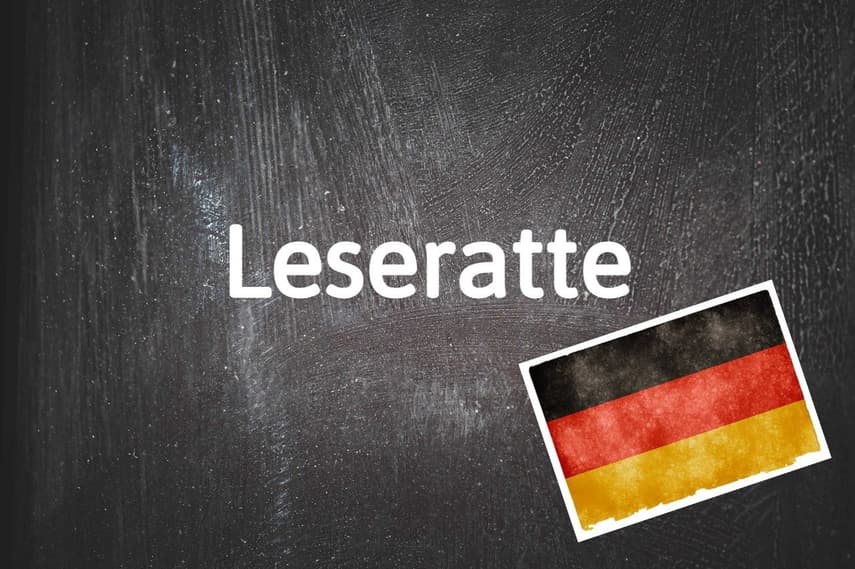German word of the day: Leseratte

Why do I need to know Leseratte?
Because this cheeky term of endearment could likely apply to fair number of people you know – or even yourself! – and having a few German idioms up your sleeve is a sure-fire way to impress native speakers.
What does it mean?
Die Leseratte quite literally means “reading rat”. It applies to people who love nothing more than trips to the library or snuggling up on the sofa for hours with a new page-turner. As children, they were the ones who snuck the reading light back on to read just one more chapter after their parents told them to go to sleep. As adults, you may well find them emptying their bank accounts at their nearest second-hand bookshop.
Advertisement
As you may notice, this has very similar connotations to the English “bookworm” – and you’ll be pleased to know that you can also use this term (Bücherwurm) in German. However, you’ll probably hear Leseratte a bit more often, along with its book-hating opposite: the Lesemuffel.
The potential for cutesy artistic depictions of nerdy reading rats has also turned the Leseratte into a commonly used trope in kids’ games and books, so keep your eyes peeled for this character next time you’re out and about.
READ ALSO: German word of the day: Schlau
Where does it come from?
According to literary historian Michael Krumm, the exact origins of the Leseratte are unknown, though regional variations of the phrase have been used in Germany since the 19th century.
But why exactly would you associate reading with rats? Well, the image is probably meant to imply that keen readers – like their rodent counterparts – have a vociferous appetite, devouring books with the same relish that rats devour day-old kebabs on the street.
It’s for this reason that the term Leseratte had a pretty negative connotation well into the 20th century. It was used to denigrate people – presumably in large part women – who seemed to consume endless books with no regard for their quality.
These days, of course, the term has had quite a makeover, so reading rats of the world can wear their name with pride.
Use it like this:
Bist du eher eine Leseratte oder ein Lesemuffel?
Are you more of a bookworm or a book hater?
Kannst du mir ein gutes Buch empfehlen? Ich bin eine echte Leseratte!
Can you recommend me a good book? I’m a real bookworm!
